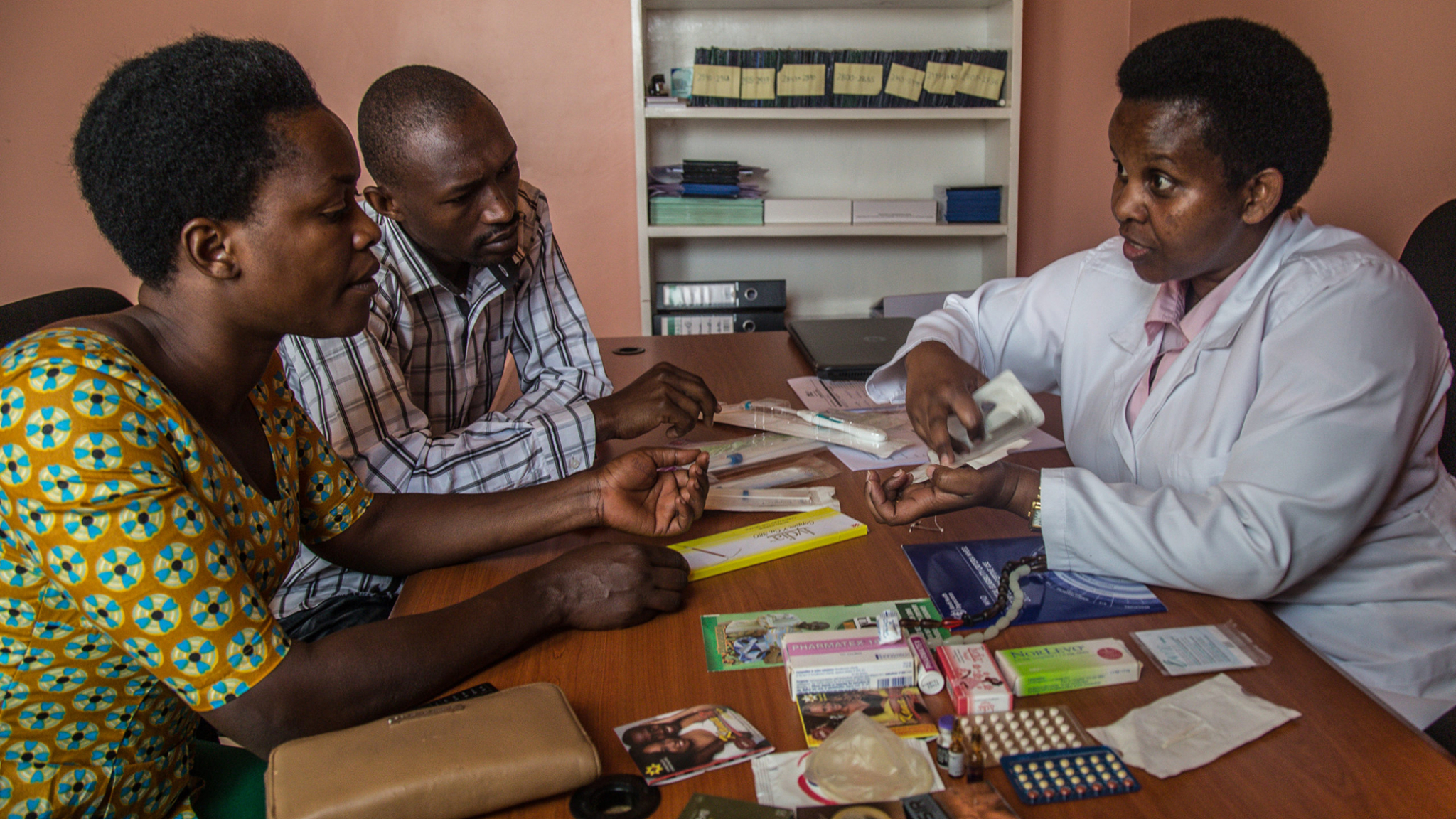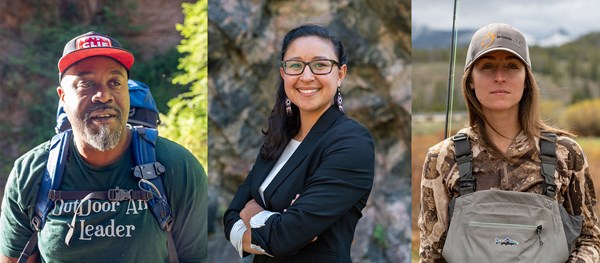


Below is a sample of the emails you can expect to receive when signed up to hewlett.
|
No images? Click here 
Dear Colleagues, This summer, my colleagues and I at the Hewlett Foundation Cyber Initiative have continued to examine how we can do more to support greater racial equity in the cyber policy field. As you might imagine, it’s also been a topic of considerable attention within the rest of the foundation, both in our internal operations and our grantmaking, where we recently announced roughly $170 million in new funding commitments in support of racial justice initiatives. We will have more to say about what the Cyber Initiative is working on with regard to racial equity in the coming months, but for now I’m writing so share some links to other work we are undertaking, job openings that may be of interest to you or those in your networks, and news from our grantees. Notable Links This week, we announced a new project called the Emerging Tech Policy Leaders Program – a partnership with the Charles Koch Institute that will provide early-career professionals with opportunities in the technology and cyber policy fields. Monica M. Ruiz and I wrote about that program and some of our other recent talent pipeline work on our website, and you can learn more about the Emerging Tech Policy Leaders Program, including the names of the individuals and organizations participating in this first round, at Koch’s site. Monica and I also co-authored – along with Dr. Jacquelyn Schneider of the Hoover Institution – an article in Lawfare about how the U.S. Department of Defense (DoD) should get serious about its engagement with academia on cyber policy. We offer concrete suggestions for how DoD should partner with universities to attract a diverse array of top cyber talent, as well as learn from cutting-edge, multidisciplinary research. Earlier this summer, we made a grant to support the important work of Girl Security, an organization that works to close the gender gap in national security. Our grant to Girl Security will help a diverse group of girls and young women learn about issues, including disinformation, election security, ethical hacking, and artificial intelligence. You can get a sense of the kind of work Girl’s Security does in their recently released Girl’s Guide to Election Security, “a comprehensive guide for girls (ages 13+), teachers and schools, communities, and parents.” Last month, Hewlett Foundation staff and some of our colleagues from other organizations took part in an online election disinformation simulation game we helped fund the development of called Threatcast 2020. While the game, developed by Mike Masnick of TechDirt and the Copia Institute and Randy Lubin of Leveraged Play, was conducted under Chatham House Rules, we can say that it sparked a fascinating conversation among representatives from philanthropy, civil society academia, and the news media. Mike has a TechDirt post about our event and several others they’ve run this summer if you’d like to learn more. The recently re-launched Institute for Security and Technology (formerly Technology for Global Security) announced they are accepting applications for its inaugural Future Digital Security Leaders Fellowship, which “will provide on-the-job training opportunities for young, aspiring security professionals in an effort to bring diverse experiences to national security research, policy, and innovation.” And if you haven’t seen it yet, the Institute’s launch event featured fascinating conversations with cyber policy experts, including Dr. Sarah Sewall of In-Q-Tel, Dmitri Alperovitch, and Camille Stewart, among others. R Street Institute is hiring a managing senior fellow for tech policy to “manage and build an exceptional team and lead important work in issue areas such as privacy, antitrust, telecommunications, emerging technologies, and online content moderation.” You can learn more and apply at R Street’s website. Our colleagues at Data & Society are hiring a managing director, a new role at the organization responsible for leading goal-setting and strategic planning, as well as managing the organization’s program teams. The call is open until September 18, and you can apply here. The Center for Peace and Security Studies at the University of California, San Diego is looking for two postdoctoral fellows for one-year terms to help research cybersecurity, escalation, and international conflict in a project the Hewlett Foundation is funding. Review of applications began September 1, but applications will be considered until the positions are filled. Our grantee, the Center for Long-Term Cybersecurity at UC Berkeley, has been hosting a series of events this summer featuring winners from their inaugural arts contest. The final event in the series, which will take place on September 16 and is free to join, is called SweetWire, “a music video project that translates the successful containment of a cybersecurity attack into music and choreographed motion,” by UC Berkeley professor and data artist Greg Niemeyer. Congratulations to CLTC and all the winners for the creation of this fascinating body of work. Lastly, our grantee, the CalPoly California Cybersecurity Institute, is hosting its virtual Space and Cybersecurity Symposium on October 5-8, 2020. It will bring together academia, government, and commercial agencies to discuss the latest strategies needed to secure private and public space resources and supply chains from state and non-state cyber adversaries. *** As always, if you have any questions about our work, please don’t hesitate to be in touch. Sincerely, Eli Sugarman 
FOLLOW US 
The William and Flora Hewlett Foundation
2121 Sand Hill Road Menlo Park, CA 94025
Unsubscribe
|
|
No images? Click here 
Dear Colleagues, Over the past month, America has been forced, once again, to confront our painful history of racism and institutionalized violence against Black people and other people of color in our country. The anguish and anger at the murder of George Floyd has led to protests on a scale not seen in a generation or more, and a growing sense that this time could be—must be—different. As I wrote to our grantees and the Hewlett Foundation shared in a statement earlier this month, none of this is new. And each of us, as individuals and members of the communities we are a part of, must do better. That is particularly true for those of us protected by our privilege, especially in philanthropy. The lack of diversity in the cyber policy field is a serious and urgent problem: one that undermines our collective ability to change the world for the better. Our Cyber Initiative has supported efforts to build a more diverse cyber policy field, and we’re proud of the work our grantees have done in this area, such as the SourceList database of diverse experts in tech policy or the inclusive fellowship recruitment and application processes developed by the Aspen Tech Policy Hub and TechCongress. Despite these efforts, it is clear that we need to do much more to actively welcome people of color into the field and ensure they play a central role in building its future. A single statement cannot, of course, right historic wrongs. But it can commit us to listening, learning, and acting in ways that advance the cause of justice. How we as a field, and how the Cyber Initiative’s grantmaking, can do more to support equity and inclusion was an active topic of conversation for our staff and grantees when we convened last week, and will continue to be. It’s been heartening to hear so many of our grantees grappling with these issues with honesty, openness and candor. In that same spirit, I welcome your thoughts on what we can do to ensure the resolve catalyzed by this tragic moment is not lost. Notable Links Systemic Racism is a Cybersecurity Threat. Writing for the Council on Foreign Relations, Camille Stewart, who is the program lead for the Transformative Cyber Innovation Lab at our grantee the Foundation for Defense of Democracies, makes a powerful case for how racism makes us less secure—exploited by our adversaries, complicating efforts to combat misinformation and disinformation, undercutting cyber diplomacy, and making many other challenges harder to overcome. Camille is also a driving force behind the #SharetheMicinCyber campaign, along with Lauren Zabierek of the Cyber Project at Harvard’s Belfer Center. On Risky.Biz, Patrick Gray talked with Cyber Initiative grantees Bobby Chesney—about how and under what authorities the U.S. government might use military and intelligence assets to deal with ransomware—and Mieke Eoyang about her work at Third Way on cyber law enforcement. Axios has relaunched its Codebook newsletter in partnership with Aspen Digital, also a grantee of the Cyber Initiative, with Aspen Senior Staff Writer Zach Dorfman in charge of the weekly email. You can sign up here. Hewlett Foundation President Larry Kramer signed on to an initiative launched by the CyberPeace Institute that calls on the world’s governments to take action against cyberattacks on the healthcare sector. Our grantee CitizenLab shared their research on Dark Basin, a massive hack-for-hire operation that has targeted hundreds of institutions on six continents, including many American nonprofits. And UC Berkeley’s Citizen Clinic published a very thoughtful article on how philanthropy can get serious about digital security (especially that of its grantees). The Clinic also shared a wonderful Education Center filled with resources to train digital security experts and help civil society itself improve nondigital security. *** Thanks for reading, and thank you for the work you do every day to develop more effective cybersecurity policies and practices. If you’d like to share your thoughts about what the Cyber Initiative can do to help foster a more inclusive cyber policy field, or just have questions about our work, please don’t hesitate to be in touch. Sincerely, Eli Sugarman 
FOLLOW US 
The William and Flora Hewlett Foundation
2121 Sand Hill Road Menlo Park, CA 94025
Unsubscribe
|
|
No images? Click here 
August 2020 | Updates, opinion + analysis from the Hewlett Foundation 
New steps to address systemic racismHewlett Foundation President Larry Kramer shares our new commitment to racial justice, a response to the imperative all institutions—especially institutions like ours—have to confront systemic racism in ongoing programs, culture, and operations. 
Supporting Bay Area COVID-19 relief effortsOur grant to the Silicon Valley Community Foundation is helping hard-hit communities and the nonprofit organizations that serve them throughout the region. Learn more about this grant and SVCF''s local relief efforts.

Ten Bay Area nonprofits receive grants to partner with world-class artistsPart of our Hewlett 50 Arts Commissions, the new dance works will tackle themes relevant to today''s challenges, including racial justice, inequality, and rising xenophobia around the world. 

A call for post-COVID, climate-forward policyOur Environment Program Director Jonathan Pershing and Program Officer Jane Flegal explain how the compounded crises of COVID-19, economic shock, and racial injustice offer a chance for policymakers and philanthropists to build back better. 

Refreshing two of our global grantmaking strategiesOur program staff explain how equity, transparency, and collaboration are guiding our processes to learn from and shape our future grantmaking to advance women’s economic opportunities and expand sexual and reproductive rights and access.


The voices of Western ConservationConservation leaders from Outdoor Afro, Hispanic Access Foundation, and Artemis talk about their work to protect public spaces and make conservation and outdoor recreation more inclusive. 
FOLLOW US 
The William and Flora Hewlett Foundation
2121 Sand Hill Road Menlo Park, CA 94025
Unsubscribe
|
|
No images? Click here 
Updates, opinion + analysis from the Hewlett Foundation 
Our new Economy and Society Initiative: $50 million commitment to replace neoliberalismThe foundation announced a new five-year effort to replace neoliberalism—the free-market, anti-government, growth-at-all-costs approach to economic and social policy—with a new “common sense” capable of addressing society’s biggest challenges. Learn more:

In this series, Hewlett Foundation experts explore how the current crises are catalyzing change—and what that could mean for reimagining a better future. Read the latest pieces:
"This is a call to action for others—foundations, individual donors, and philanthropic institutions—to protect people and our planet from a climate catastrophe." - Hewlett Foundation President Larry Kramer on a pledge by 29 funders to take sustained collective action on climate 
2020 and beyond: Annual grantee conference callDuring last week''s calls, Hewlett senior staff reflected on the events of 2020 and answered questions from grantees about plans for next year. View a recap. Opinion + analysis
What we''re reading
Staff updates + opportunities

FOLLOW US 
The William and Flora Hewlett Foundation
2121 Sand Hill Road Menlo Park, CA 94025
Unsubscribe
|
| Data Name | Data Type | Options |
|---|---|---|
| First name | ||
| Last name | ||
| Name (full) | ||
| Title | ||
| Choose the Programs you would like to hear about | ||
| Cyber Initiative | ||
| Education | ||
| Environment | ||
| Global Development and Population | ||
| U.S. Democracy | ||
| Performing Arts | ||
| Yes | ||
| Yes | ||
| Yes | ||
| Yes | ||
| Yes | ||
| Yes | ||
| Yes |


 Arts and Entertainment
Arts and Entertainment Business and Industry
Business and Industry Computer and Electronics
Computer and Electronics Games
Games Health
Health Internet and Telecom
Internet and Telecom Shopping
Shopping Sports
Sports Travel
Travel More
More